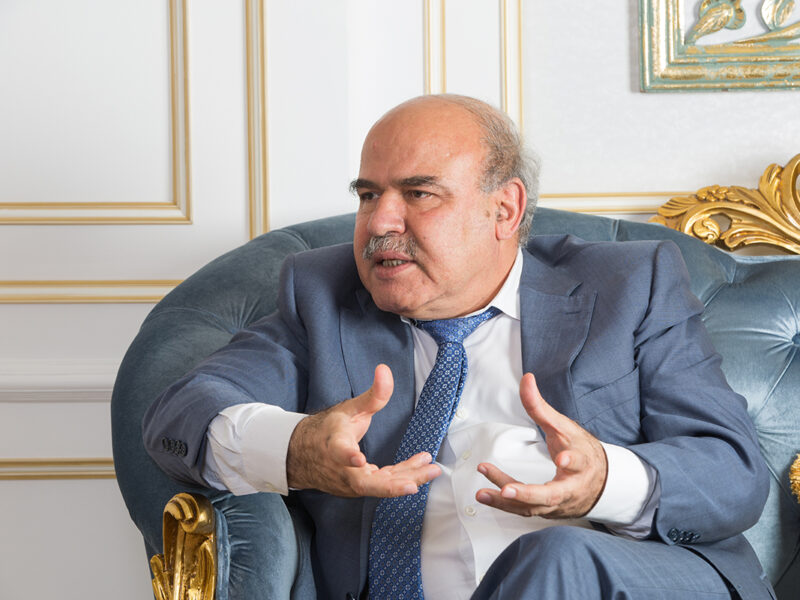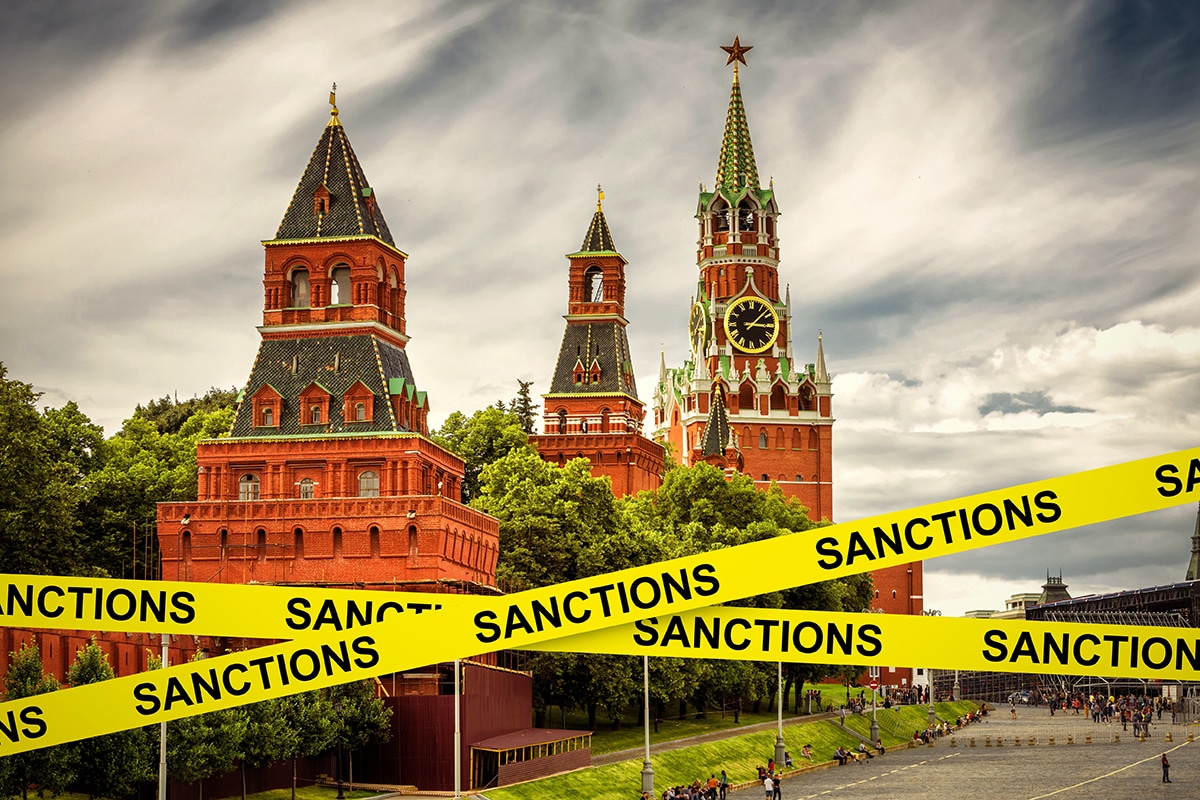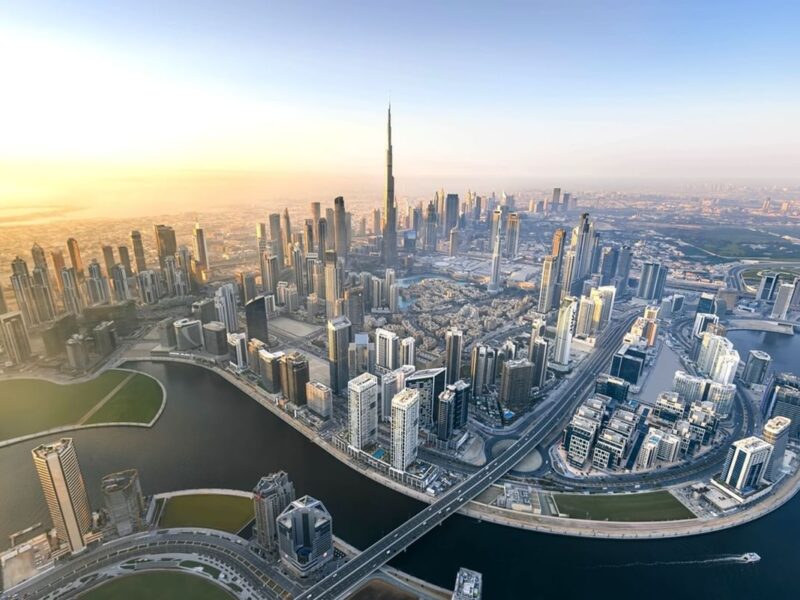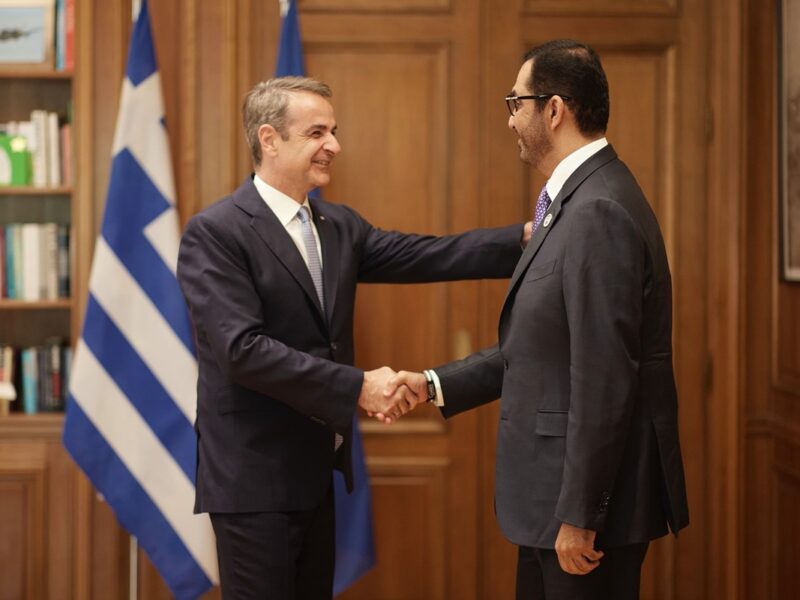Russia’s economy is showing signs of overheating, with high inflation and abnormally low unemployment, while growth projections place it ahead of some advanced economies. However, experts warn that these indicators may be masking an impending recession.
Despite being one of the world’s most sanctioned countries, recent projections suggest that Russia’s economy is still growing. According to the International Monetary Fund’s latest World Economic Outlook, Russia is poised to outpace many economies with a projected real GDP growth rate of 3.2 percent this year.
At first glance, the Russian economy appears to be defying expectations. This perceived resilience, however, may be more illusion than reality. Many are left questioning the efficacy of Western sanctions and the true state of Russia’s economic health, with experts suggesting that the growth figures may be inflated.
“Rather, we are talking about Russian statistical data; the key factor in nominal growth is an increase in the state’s share in the economy through state orders and rising inflation,” Anatoliy Amelin, co-founder and Director of Economic Programs at the Ukrainian Institute for Future, told Arabian Business.
“Western measurements are based on official Russian statistics, but a number of independent studies show a discrepancy between Russian statistics and reality,” he added.
Sanctions in response to invasion
Since Russia launched its invasion of Ukraine in 2022, several countries and international bodies have imposed sanctions to respond to the aggression. The United States implemented export restrictions on specific refining technologies, hindering Russia’s oil refining sector. It also excluded several Russian banks from the SWIFT international payments system and imposed broad restrictions on semiconductors, telecommunications, encryption security, and other technologies.
The European Union banned the export of refining technologies to Russia, closed its airspace to Russian aircraft (including oligarchs’ private jets), and prohibited Russian state-owned TV networks and news agencies from operating within the bloc.
Other nations, including Canada, Japan, New Zealand, Taiwan, and the United Kingdom, also introduced sanctions targeting Russian refineries, banks, and military exports. These measures represent just a portion of the global response to Russia’s actions in Ukraine.
“Today, we see big problems in the Russian economy — high inflation, limited access to technology, loss of Western markets, increased dependence on China and India, loss of markets for military products, seizure of central bank reserves, outflow of investment, limited access to SWIFT, and many others.”

But perhaps, some of the most important measures are isolating Russia from foreign capital, tech, and investment, according to Managing Partner and Director at COSA Intelligence Solutions, Pavlo Verkhniatskyi.
“Oil price cap and significant decrease of oil and gas imports by Western countries is a big hit, which has also led to Russian dependency from a few remaining clients like China and India that also demonstrate a pragmatic approach to buying Russian hydrocarbons with a huge discount. Trade operations have also been targeted through sanctioning banks,” sanctions expert Verkhniatskyi told Arabian Business.
Military-related sanctions have also significantly impacted Russia’s defense industry, leading to a halt in development. He pointed to Moscow’s cancellation of several modern arms projects, such as the Armata tank, as evidence of this setback.
According to Verkhniatskyi, Russia’s growing dependence on China in this sector indicates a shift towards lower quality and less sophisticated technology compared to what they previously accessed through trade with companies in the US and France.
In addition, restrictions on providing oligarchs and Russian companies with financial, accounting, and other professional services have severely hampered their ability to conduct international business and hindered efficient development. This, Verkhniatskyi said, has created a widening gap between Russia and the rest of the world, which continues to benefit from the sharing of capital, knowledge, and technologies.
To counter this, Russia has been actively stimulating its economy over the past 2 years in order to compensate for losses from sanctions and restrictions on access to international markets. According to Amelin, Russia has offered preferential mortgages and loans to companies and increased the volume of government orders.
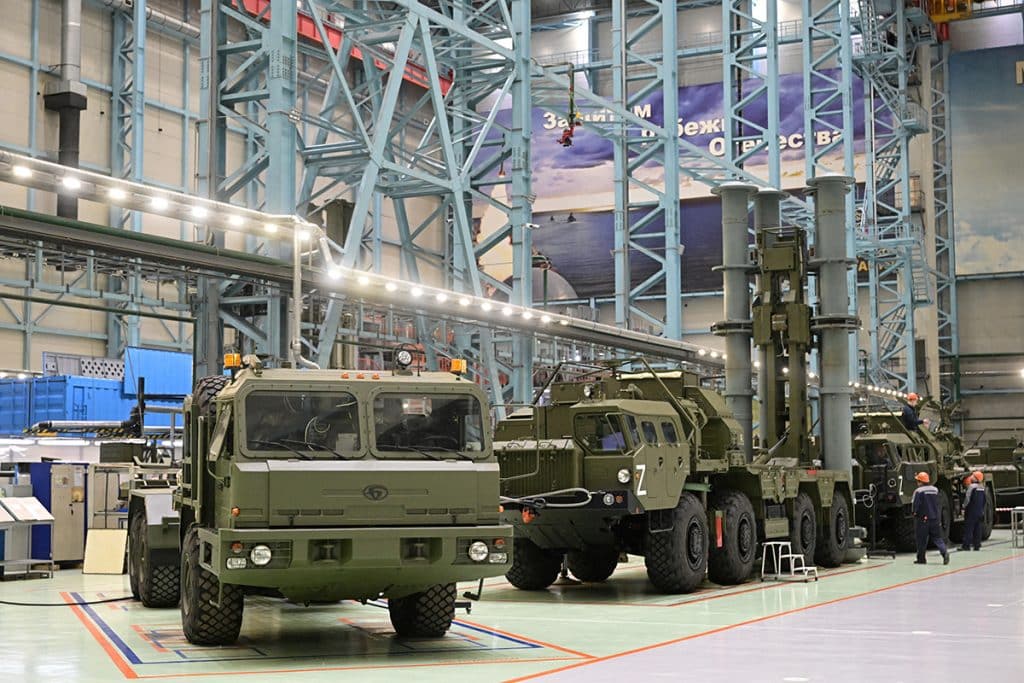
However, as a result, it instead led to high inflation, an increase in the Central Bank rate, the cancellation of preferential loan programmes, and an increase in resources for the economy by more than 20 percent. This creates the conditions for a recession, said Amelin.
Russia’s economy now faces the threat of overheating — when an economy grows at an unsustainable pace with abnormally low unemployment and rising inflation. Inflation, for the moment, remains far in excess of the target rate of 4 percent, and GDP is growing rapidly, according to a recent report.
“The Russian economy is not doing well. Problems… are growing and the safety margin of the Russian economy does not exceed 1 year,” warned Amelin.
Sanctions were imposed to prevent the country from waging its aggressive war against Ukraine. They succeeded in reducing Russia’s revenues and limiting access to foreign military technology, but the reality is the oil and gas industry, its strongest budget revenue contributor, has “suffered significant losses due to the European market turning away, and the remaining client buying oil with a huge discount,” Verkhniatskyi said.
In 2023, Russia’s key state company Gazprom suffered losses worth $13.8 billion, a historic setback when compared to 2022 when it posted more than $16 billion in profit.
Foreign investment in Russia declines
“[This] does not describe a healthy economy,” said Verkhniatskyi. “I believe that given the mid- and long-term effect of sanctions, Russia’s economy is in a critical condition.”
But perhaps the most pressing issue would be brain drain.
“Brain drain and capital flight are unprecedented, with even business of Russian origin fleeing the country, is also a time bomb for a seemingly healthy economy. Isolation from foreign capital and sanctions on major banks makes international players very careful while dealing with Russian counterparts making it simpler to avoid any interactions in general,” he added.

The country is also lacking investment in key areas such as oil and gas, metallurgy, and machine building, most of which are difficult to maintain without modern technology. Verkhniatskyi believes this could lead to a “domino effect” on existing equipment such as aircraft.
Both experts dismissed the notion that Russia’s economy is more complex or larger than Western assessments suggest. “Absolutely not,” Amelin asserted. “Russia does not have access to key technologies – in particular, the production of semiconductors, nanotechnologies and biotechnologies. They do not create world-class innovations, but they try to copy them. But a copy is usually worse than the original.”
This is seen in its growing reliance on China, primarily in terms of energy cooperation, tech, and trade. “The important point is that Russia exports mainly raw materials to China, and China exports technological products to Russia. Thus, it is China that is the beneficiary of such a cooperation, retaining high added value,” he explained.
Attempts to bypass sanctions through shadow fleets, parallel imports, and intellectual property appropriation are seen as desperate measures that further undermine Russia’s economic credibility. “The very fact that a country uses such schemes clearly demonstrates the… downfall of such a state,” Verkhniatskyi said.
As for the future, both experts agreed that the full impact of sanctions is yet to be felt. “Sanctions are a slow killer,” he added, cautioning against premature judgments based on short-term economic indicators.”
“… Even when one might say look at Iran or DPRK, they have been under sanctions for decades, it does not mean they are doing well, especially when you look at the alternative.”


